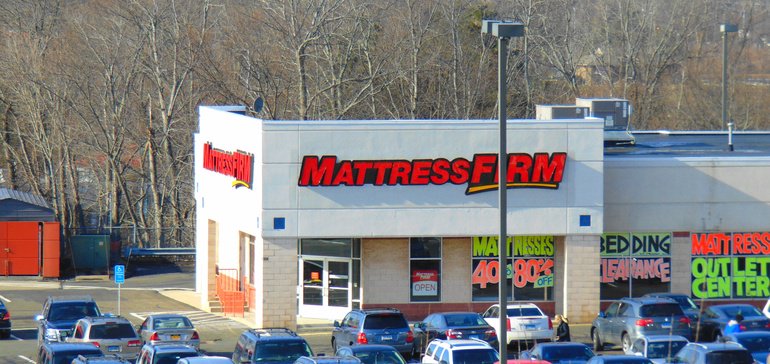Dive Brief:
- Mattress Firm is reportedly preparing to file for bankruptcy as soon as this week, according to Reuters, which first reported the story, and The Wall Street Journal. Unnamed sources familiar with the matter told Reuters that the mattress retailer was looking to exit costly store leases and shore up its business. Mattress Firm did not immediately respond to Retail Dive’s request for comment; the company’s private equity owner, Steinhoff International Holdings, declined comment.
- Mattress Firm plans to take just a few months for the bankruptcy process and would repay vendors in full, according to Reuters. The company also plans to shed stores in the process (Mattress Firm currently has a footprint of over 3,000 stores in the U.S.).
- Steinhoff acquired Mattress Firm in 2016 for $3.8 billion, shortly after Mattress Firm had acquired rival Sleepy’s for $780 million — with much of that price tag reportedly financed with debt — and has been in talks with creditors over debt restructuring. News of the possible filing comes after reports in August that the company was considering bankruptcy.
Dive Insight:
A number of factors can lead retailers to consider bankruptcy, but at least in Mattress Firm’s case it seems clear that growing competition is partially responsible.
Mattress Firm is part of the old generation of mattress retailers, which as a group were notorious for high prices and relatively similar, undifferentiated products. In some cases the margins in the mattress market were close to 900%, making it easy for new companies to break into the space and still make a profit, Michelle Grant of Euromonitor International told Retail Dive in July.
And that’s happened in a big way, not only in the number of companies that have since crowded the market — including Tuft & Needle, Casper, Leesa and Purple, among others — but also in some of the early success that those players have shown. Leesa has snagged high-profile partnerships with Pottery Barn and West Elm over the years, and Tuft & Needle’s success in the market led to a merger with Serta Simmons in August, in the hopes of strengthening the latter’s market position.
Casper is its own animal entirely. Not only has the retailer formed a strong partnership with Target, but it also announced plans to open its first standalone store in February, followed swiftly by plans for 200 across North America. That’s not to mention pop-up efforts that include letting New Yorkers pay to take a nap.
But as young retailers rise up, old, traditional players inevitably start to fall. It’s not clear yet if Mattress Firm will file for bankruptcy — or what the outcome of a filing would be — but the company has faced headwinds. In addition to the competition from startups, Mattress Firm faced a tough break when its partnership with Tempur-Pedic fell apart last year, which lead not only to lawsuits at the time, but another filing in August that claimed Mattress Firm was selling “confusingly similar” products to Tempur-Pedic.
There’s no evidence that the category is slowing down, either. Amazon recently entered the mattress space itself with a private label as part of the AmazonBasics line, and Casper is pushing into international markets like Canada as well.

